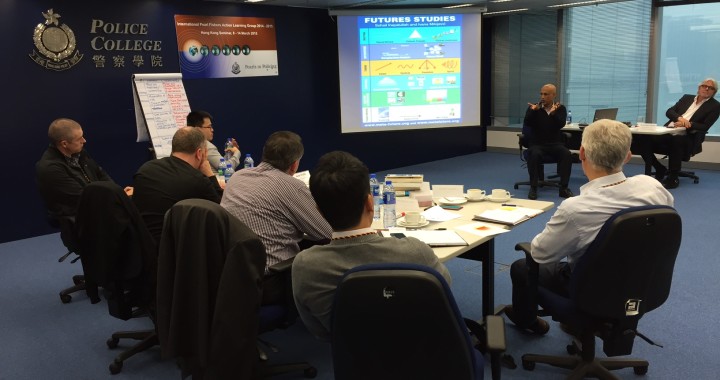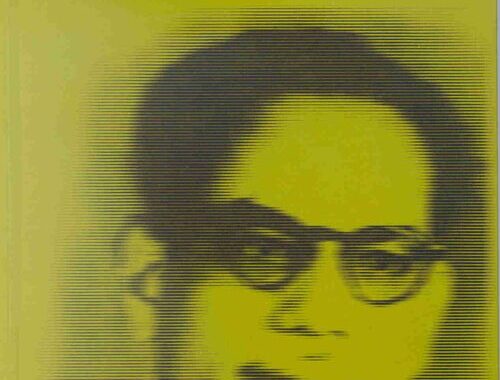This is the PDF version of Understanding Sarkar. If you wish to order a print copy you can do it here
Understanding Sarkar: The Indian Episteme, Macrohistory and Transformative Knowledge
By Sohail Inayatullah
Leiden, Brill, 2002
Sohail Inayatullah takes us on a journey through Indian philosophy, grand theory and macrohistory. We understand and appreciate Indian cyclical and spiral theories of history and their epistemological context. From other civilizations, we explore the stages and mechanisms of social change as developed by seminal thinkers such as Ssu-Ma Ch’ien, Ibn Khaldun, Giambattista Vico, George Wilhelm Friedrick Hegel, Oswald Spengler, Pitirim Sorokin, Michel Foucault and many others. They are invited to a multi-civilizational dialogue on the nature of agency and structure and the ways to escape from the patterns of history.
But the journey is centred on P.R. Sarkar, the controversial Indian philosopher, guru and activist. While Sarkar passed away in 1990, his work, his social movements, and his vision of the future remain ever alive. Inayatullah brings us closer to the heart and head of this giant luminary. Through Understanding Sarkar, we gain insight into Indian philosophy, comparative social theory, and the ways in which knowledge can transform and liberate.
Length: 368 pages
After payment, you will receive an email with the download link. If the email does not appear in your inbox, please check your spam folder.
Comments on Understanding Sarkar
The next generation of South Asians will consider themselves fortunate that scholars like Sohail Inayatullah have helped to keep open a humane and plural vision of the future for them.
Dr. Ashis Nandy is the director of the Center of the Study of Developing Societies, Delhi. Author of The Intimate Enemy and Traditions, Tyranny and Utopias.
It’s a superb book. Deeply inspiring and provocative. The Sarkar-Inayatullah combination makes a very good reading indeed. Inayatullah introduces the fascinating world – in time, in space, and in social space – of P.R. Sarkar.
Johan Galtung, President of Transcend: A Peace and Development Network and author of over seventy books on peace studies, futures studies, international relations, Gandhi, and social theory. Formerly, Professor of Peace, Political Science and Sociology at the Universities of Bern, Saarland, Hawaii and Witten-Herdecke.
Dr. Sohail Inayatullah is the leading example of a new generation of global thinkers, actors and visionaries. While firmly attached to and informed by the culture into which he was born and passionately and yet rationally committed to facilitating the future of South Asia, Sohail Inayatullah is also a global it is not too much to say, cosmic figure as well, carrying in his very person the tensions and hopes of a future which is at the same time both local and global.
James Dator is a professor of political science and director of the Hawaii Research Center for Futures Studies, University of Hawaii. Secretary-General and President of the World Futures Studies Federation, 1982-1990.
In addition to the service he is rendering by bringing to a wider audience the thoughts of a very important thinker, Sohail Inayatullah provides an extraordinary contribution to social theory with an unusual combination of analytic rigor and boundary-challenging imagination.
Professor Michael Shapiro, University of Hawaii, is the author of numerous books on political and social theory, including Reading the Postmodern Polity, Reading ‘Adam Smith’, Violent Cartographies and Cinematic Political Thought, For Moral Ambiguity: National Culture and the Politics of the Family 2001.
In this scholarly and inspiring work, Sohail Inayatullah brings to life the contributions of the remarkable Indian visionary, theorist, and social activist Prabhat Rainjan Sarkar. Skillfully blending his understanding of both Eastern and Western scholarly traditions, Inayatullah looks at history from a non-eurocentric perspective that also takes into account the thinking of some of the best known Western macrohistorians. This book is not only highly instructive; it also never loses sight of what Sarkar called neo-humanism – the consciousness that we are part of an interconnected whole and that a good society is one that manages to represent harmoniously the spiritual needs of its individuals.
Riane Eisler, author of The Chalice & The Blade, Sacred Pleasure, and Tomorrow’s Children.
Sarkar’s writings on historical processes offer a refreshing alternative to the orthodox interpretations of Toynbee, Hegel and Marx. He makes Samuel Huntington’s Clash of Civilizations seem parochial in comparison. Dr. Inayatullah skillfully weaves Sarkar’s comprehensive overview of cultural life-cycles into a coherent whole, through which the full sweep and scope of the fundamental forces that shape history can be rendered. Despite the magnitude of the canvas upon he paints, his is a work of systematic and focused scholarship. This book should be required reading for anyone looking to understand macrotheories of social change from a non-eurocentric, holistic, and synergistic perspective.
Dr Tim Dolan is an Associate Professor of Political Science at Southern Oregon University and Director of the Master in Management Program.
Sohail Inayatullah is the world’s leading scholar of Sarkar’s thought. His latest book, Understanding Sarkar, is sweeping in scope – quite literally a philosophical tour de force. By contrasting Sarkar’s ideas to some of the greatest minds in human history, Inayatullah has achieved a remarkable philosophical integration that is both breathtaking in its vision and relevant in its possibilities for creating societal change. Indeed, if you want a better grasp of Sarkar’s comprehensive worldview, I can think of no better source than Inayatullah. Brilliant.
Roar Bjonnes, writer and former editor of Prout Journal and Common Future
Dr. Sohail Inayatullah’s book offers an excellent entry point for those wanting to explore the fascinating and challenging ideas of P. R. Sarkar. At the same time, Understanding Sarkar provides those who have studied Sarkar with wonderful new ways of seeing and connecting the vast expanses of his works. We owe much to Dr. Inayatullah for this splendid effort.
Craig Runde is the director of new program development at Eckerd College, St. Petersburg, Florida.
In a time when “global” is equated with “western”, Sohail Inayatullah takes us through the door of Indian thinking to a worldview that is global in the true sense of the word. Going beyond naive Western idolization of Asian philosophies and avoiding the pitfalls of dogmatic, sometimes fanatic, adherence to tradition faith characteristic to many Eastern mentalities, Inayatullah examines P.R. Sarkar’s world in pursuit of a universality that is yet to be realized within the potential of human civilization. Those wishing freedom from culturally ingrained mental habits should consider this work as essential reading.
Dr. Partow Izadi, senior scientist in evolutionary futures, global education and systems theory, University of Lapland, Finland.
This is a companion volume to Inayatullah and Galtung’s masterly synthesis of macrohistory and macrohistorians, that includes P R Sarkar. Here the practice as well as the theory of Sarkar enters the grand sweep, enriching and legitimating the story. Their respective models have elements in common but few contain all Sarkar’s elements of spiritual practice, humanity, and humility – even if potentially ferocious. He lived, fought and spread his theory into a movement. Isolated perhaps from the writings of the other great minds, Sarkar seems to have an uncanny understanding of the emerging insights of genetics on our social behavior (evolutionary psychology or neo-Darwinism) and of social construction.
Alan Fricker, President, Sustainable Futures Trust, Wellington, New Zealand
Beautiful! A great work.
Dada Maheshvarananda, Author of After Capitalism and Neo-Humanist Ecology
Previously, Dr. Inayatullah’s co-authored Macrohistory and Macrohistorians wove the warp and weft of philosophical perspectives throughout the course of history. Now, Sohail Inayatullah provides a provocative look at macrohistorical trends from the standpoint of a renowned Eastern philosopher and social critic, P.R. Sarkar, whose impassioned views emote feelings of the forgotten masses.
Sarkar’s wide-ranging views, aptly portrayed by the author, tend to force reconsideration of Western, capitalistic, entrepreneurial, materialistic, secular, scientific and political engrained mindsets. Dr. Inayatullah’s presentation piques realization of the self-centered and smug arrogance that often underpins Western views. Sarkar’s wisdom of the Eastern philosophical perspective, will send minds racing. Grasping the salience of diverse views is certain to regird a searching of the readers’ own consciousness. Readers may begin pondering engrained cultural mindsets, guiding philosophies, and the Great Issues posed by the book. In the process, readers may come to better know themselves.
The author’s marvelous ability draws out and details deeds, developments and discourse that frames the Great Issues of civilization from the perspective of one of India’s renown philosophers.
Privileged elites in all of humanity’s innumerable dimensions almost certainly will be provoked into assessing their own cultural mindsets. Perspectives consciously established in one’s mind, will compel – perhaps for the first time – consideration of unconscious attitudes and beliefs.
Graham Molitor, President, Public Policy Forecasting, and Vice President & Legal Counsel, World Future Society.


